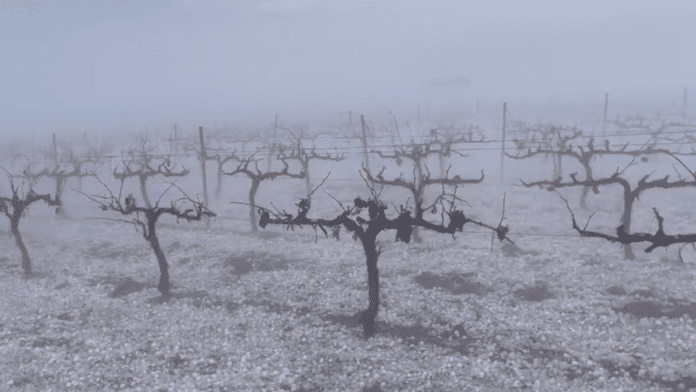News in brief: A severe hailstorm in Valencia, Spain, caused nearly $43 million in crop damage, impacting thousands of acres and leaving farmers in shock. The Spanish government has pledged financial assistance, but concerns remain about the adequacy of the support, and analysts anticipate long-term consequences for the region’s agriculture.
Farmers in the southeastern Spanish city of Valencia are left in shock after a severe hailstorm struck the region over the weekend, destroying nearly $43 million worth of crops, according to a news report.
The damage spread across thousands of acres of land and the Association of Farmers in the city said nearly 100% of some farmers crops were affected. It added that the hailstorm was one of the worst in recent history.
The storm had hit on Sunday, September 17, bringing hail that were described to be larger than euro coins. It caused significant damage to vineyards, citrus orchards, and other crops. Additionally, it ceased movements as people took shelter where they could, shutdown highways and vehicles were packed in streets.
#BREAKING | A devastating hailstorm has been hit yesterday Grêlons à Benaguasil, Valencia, Spain. #España #Climate #WeatherUpdate #tiempoCV #Lluvias pic.twitter.com/x4gBAxqyai
— Breaking news 24/7 (@aliifil1) September 18, 2023
The Spanish government has announced that it will provide financial assistance to the affected farmers. However, many farmers are concerned that the assistance will not be enough to cover their losses.
The hailstorm is expected to have a long-term impact on agriculture in the region. Some farmers have reportedly lost their entire grape production in the middle of harvest season, and others suffered severe damage to their vines. Analysts say it could lead to a significant decrease in grape production in the region in the coming years.
Rising global temperatures are expected to usher in more extreme weather events, such as hailstorms, droughts, and floods. These events have a devastating impact on farmers and food production around the world.
Hence, the urgency of actions to keep climate change impacts minimum by continuing efforts to sustainably produce food and other agricultural products.



